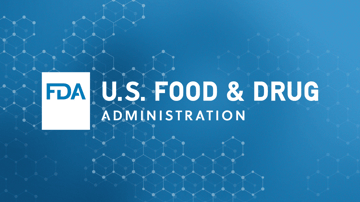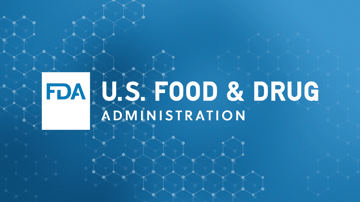In the evolving landscape of the global food industry, the importance of regulatory compliance has never been more critical. Beyond being a legal requirement, it serves as the foundation of consumer confidence and the integrity of food brands worldwide.
The Food Safety Modernization Act Rule 204 (FMSA 204), commonly referred to as the Food Traceability Final Rule, emerges as a pivotal advancement in fostering transparency and enhancing safety measures across the food supply chain. This rule represents a fundamental shift towards a more proactive and preventive approach to food safety, aiming to mitigate risks and protect public health. As we approach the January 20, 2026, compliance deadline, it's imperative for stakeholders in the food industry to understand the significance of this rule and begin the meticulous process of aligning their operations with the new standards.
This blog post dives into the critical aspects of planning and implementation for FSMA 204 compliance, outlining strategic steps and considerations for businesses to ensure they meet the upcoming regulatory demands efficiently and effectively.
Key Components of Planning and Implementation
With the January 20, 2026, compliance deadline now less than two years away, it's crucial for companies and professionals in the food industry to start preparing accordingly. This includes having the necessary procedures and protocols documented, employee and supplier training programs developed, and the proper tools and software systems implemented. As businesses think about their FSMA 204 journey, it’s important to consider the following:
Strategic Planning
The cornerstone of successful FSMA 204 implementation is comprehensive planning. This encompasses all aspects of traceability and record-keeping. Key activities in the planning phase include:
- Responsibility Identification: Assigning accountable individuals or teams is crucial for oversight and execution of FSMA 204-related tasks.
- Standard Operating Procedures (SOP) Development: Establishing SOPs is vital to ensuring uniform practices across the handling and documenting of raw materials, processing, packaging, and storage.
- Traceability Plan Formulation: Businesses must craft a traceability plan that complies with FSMA 204, detailing record-keeping, identification methods for FTL items, assignment of traceability lot codes, contacts for plan inquiries, and, where applicable, farm maps for producers of listed foods.
- Traceability Lot Code (TLC) Creation: The introduction of a unique TLC, integrating a Global Trade Item Number (GTIN) with the product lot code, is the industry’s recommendation to achieve distinct traceability within a firm’s records.
- Solution Provider Partnership: Choosing a solution provider that offers tech-enabled traceability solutions is about forming a partnership that aligns with the organization's strategic compliance needs.
Implementation
Collaborating with solution providers to put the traceability plan into action is a key step. Key activities in the implementation phase include:
- Data Capture: Companies need to ensure the capability to capture and store the required KDEs for the traceability events they manage. Additionally, companies must be able to receive traceability data from their suppliers. When it comes to shipping products, coordination with trading partners is crucial to understanding their system capabilities, enabling the seamless sharing of shipping CTEs.
- Documentation Updates: Revising related food safety plans and protocols (e.g., Supplier Approval Programs, Recall Plans, Training Protocols, etc.) is necessary to integrate the new traceability elements.
- Compliance Testing: Conducting mock recalls and traceability exercises is essential to validate the functionality of the FSMA 204 program and the readiness of the team.
- Enhanced Training: Developing and executing a continuous training program is imperative to ensure that all supply chain participants comprehend their roles and responsibilities within the FSMA 204 framework.
Leveraging Technology for Compliance and Beyond
While software is not a requirement for the implementation of FSMA 204, adopting tech-enabled traceability solutions can streamline compliance with FSMA 204's rigorous tracking and reporting requirements. When evaluating traceability solution providers, stakeholders should consider the following:
- End-to-End Traceability: It should provide complete traceability from the point of origin (like farms or fisheries) to the end consumers. This includes tracking the production, processing, packaging, and distribution phases. Although this is not required for FSMA 204, many companies are implementing beyond the basic requirements to meet their brand promise for a transparent supply chain.
- Data Integration and Sharing: Adopt platforms that facilitate seamless data integration and sharing across different stakeholders in the supply chain. This ensures that all parties, from suppliers and distributors to grocers and foodservice operators, can capture, store, and share FSMA 204-compliant traceability data, promoting transparency and accountability.
- Mobile Compatibility: Mobile compatibility allows for tracking and managing the supply chain with a native app or integration into your existing mobile tools, enhancing flexibility and responsiveness.
- Customization and Flexibility: The software should be customizable to fit the specific needs and workflows of different businesses.
- Robust Reporting and Analytics: The ability to generate comprehensive reports and analytics is vital for insights into supply chain operations, identifying trends and anomalies, and making informed decisions.
- Scalability: The software should be scalable to accommodate business growth and changes in supply chain operations.
- Mock Recalls: Features that allow for simulated recall exercises to test the traceability system, showing your traceability plan in action.
- Leveraging such technologies can help businesses not only comply with FSMA 204 but also improve overall supply chain efficiency and food safety.
[Get the eBook]: Crafting the Case for Traceability
As the compliance deadline for FSMA Rule 204 draws nearer, it is clear that the journey toward achieving full compliance is both complex and multifaceted. However, it is a necessary evolution for the food industry, aimed at ensuring the highest standards of food safety and traceability. Strategic planning, diligent implementation, and the adoption of technology play crucial roles in this transition. By focusing on these key areas, companies can not only meet the legal requirements set forth by FSMA 204 but also enhance their operational efficiency, strengthen consumer trust, and ultimately uphold their brand's integrity. This calls for a concerted effort from all stakeholders involved, from farm to fork, to embrace these changes and work towards a more transparent, safe, and reliable food supply chain. As we move forward, leveraging technology and fostering partnerships with solution providers will be instrumental in navigating the complexities of compliance and setting a new standard for food safety and traceability in the 21st century.
Ready to Take the Next Step?
With over 190 million CTEs processed through our system, Trustwell provides the precision, accuracy, and expertise required to navigate the complexities of FSMA 204 compliance. Our dedicated team is ready to guide you through implementing a robust traceability system that not only meets regulatory requirements but also drives business value through enhanced supply chain visibility and consumer trust.
Contact Trustwell today to learn more about leveraging our FoodLogiQ Traceability software for seamless FSMA 204 compliance and transforming your supply chain challenges into opportunities for growth and innovation.
In addition, Trustwell's FSMA 204 consulting services provide personalized support. From FSMA 204 education and supply chain assessments to the implementation of traceability systems, Trustwell's experts work closely with businesses to develop and refine strategies that meet the unique needs of each entity in the fresh food supply chain.
Other posts you might be interested in
View All Posts
Traceability
11 min read
| November 15, 2022
FSMA 204 Final Rule: Roadmap to Enhanced Traceability Recordkeeping
Read More
Traceability
6 min read
| January 29, 2021
Gearing up for Traceability 2.0 with FSMA
Read More
Traceability
10 min read
| February 25, 2021

